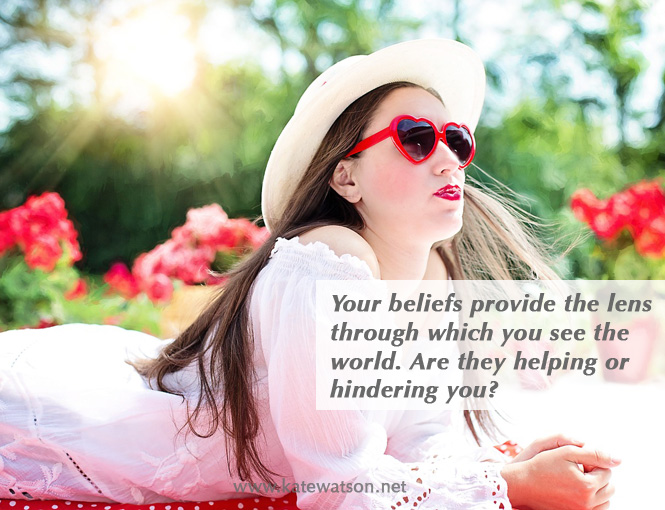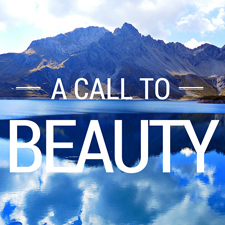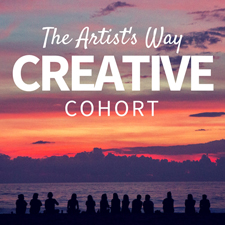
Today I’m bringing you part three of the getting to know yourself series. (If you’re just joining in, part one is here and part two is here.) In this post, we’re talking about belief systems, how they were formed, and how they impact us in our daily lives.
Our beliefs provide the lens through which we view the world, how we perceive every encounter or exchange. Our beliefs thus have a profound impact on our experiences.
Do you believe that people are inherently good or bad? Do you believe that people of certain ethnicities, genders, socioeconomic statuses, or religions have certain traits or are “better” or “worse” than another group? Do you think that what happens to you is within your control or not? Do you believe the world is a safe or dangerous place? And most fundamentally, do you believe that you are capable of living a happy life or not?
As you go about your business today, start to pay attention to any beliefs that enter your mind. Here are some places to look:
Beliefs About Yourself
When you first see yourself in the mirror each morning, do you have positive or negative messages for yourself? When you goof up at work, do you tell yourself you’re an idiot or do you say, “Dude, everyone effs up sometimes; you’ll get it next time.”
We all have beliefs about ourselves, thoughts about who we are and our value in the world. Take a moment to write down or think through some beliefs you have about yourself now:
- I believe that I am…
- I believe that my body…
- Regarding my relationships, I believe…
Now that you’ve thought about some essential, personal beliefs, you’re beginning to see whether you approach yourself from a negative or positive viewpoint, and you are able to determine whether your current beliefs serve you—that is, help you to be the best person you can—or don’t.
Beliefs About Others
Continuing the exercise above, think through or write down whatever first comes to mind as you read the following personal descriptors. You could either add “are” and describe that group of people or write a sentence of your own choosing. For example, “[Group of your choice] run the world.”
- Christians
- Muslims
- White people
- Black people
- Latinos
- Asians
- Women
- Men
- Wealthy people
- Poor people
- Heterosexuals
- Homosexuals
- People with disabilities
As you can see, the human population can be segmented rapidly and easily. My list barely scratches the surface of the possible designations we could make between each other in terms of gender, class, country of origin, socioeconomic status, and more. Write down whatever you first think about each group, regardless of whether you think it’s fair, kind, or helpful. What you’re doing is exploring your current beliefs.
You may not have immediate responses for some populations. You may self-include within that group and see its nuances to an extent that you cannot make a snap judgment, or you may be the type of person who tries not to make such judgments. That’s okay, skip it.
This exercise is simply about delving a bit further into who we are by examining our belief systems about other people.
Beliefs About How the World Works
When I was a child, I heard messages from my family like, “The rich get richer, the poor get poorer” and “If it sounds too good to be true, it is.” Whether accurate or not, those messages shaped my belief system.
You undoubtedly heard your own set of messages, which you began to uncover if you worked through last week’s post on unpacking your past and understanding its influence on your present. Today I’d like you to think a little bit more about how your past shaped your views about how the world works. Here are some examples, to get you started:
- You have to work hard to get ahead.
- With hard work, anyone can get ahead.
- People like us never get ahead.
- You have to be smart to get ahead.
- Only rich people get ahead.
You can see where I’m going. What other beliefs do you have about the world and how it works? Think through or write down some of those now, beginning with “I believe…” and writing stream-of-conscious style until you fill a page or 10 minutes pass, whichever takes longer.
Over the next few days, continue to pay attention to the beliefs that filter through your mind as you interact in the world. If you can, add those to your list.
Affirming or Changing Our Beliefs
Once you have a better understanding of what your beliefs are, you can decide whether they are worthy of you. Some beliefs will continue to serve us or the person we want to be while others may keep us trapped in the past or in attitudes that harm our interpersonal interactions or our individual success.
Beliefs generally arise from prior life experiences or lessons taught by our family of origin. At one point, we accepted a message passed on by a family member or concluded that a belief served us, even self-limiting beliefs like “you aren’t good enough.”
If that belief is one of yours—heck, it’s been one of mine—you probably adopted it as protection. It may have kept you safe instead of encouraging you to reach out and try for something bigger, where the stakes were higher, and the potential damage to your self-image may have been greater. That’s okay. It is what it is. But, as adults, we get to choose our beliefs and change them if we want to.
Like I shared last time, acknowledging our truth—who we are and what we believe—is the first step to changing anything that no longer serves us. Stay tuned for more.
Cheers,

For part four of the getting to know yourself series, click here.

















5 Attitude Adjustments to Own Your Life » KateWatson.net - […] is important. While our beliefs provide the lens through which we view the world, our attitude shapes our day-to-day choices and […]